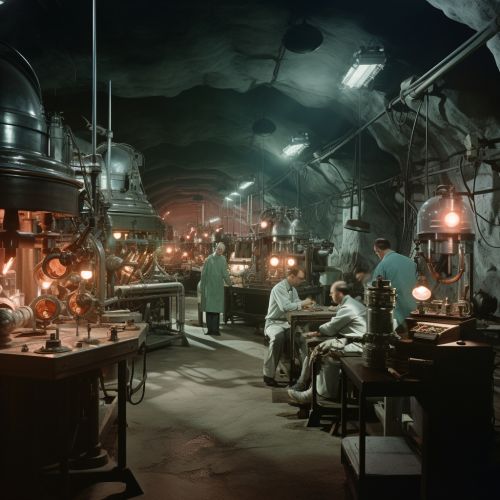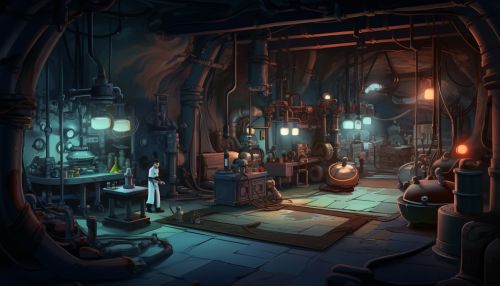Soudan Underground Laboratory
Overview
The Soudan Underground Laboratory is a pioneering underground research facility located in the decommissioned Soudan Mine in Minnesota, United States. The laboratory is operated by the University of Minnesota in collaboration with several other research institutions. The facility is situated nearly half a mile underground, providing an ideal environment for experiments that require shielding from cosmic radiation.


History
The Soudan Underground Laboratory was established in the early 1980s following the decommissioning of the Soudan Mine. The mine's depth and isolation from cosmic radiation made it an ideal location for sensitive physics experiments. The first experiments conducted at the laboratory focused on the detection of proton decay, a hypothesized form of radioactive decay that has yet to be observed.
Facilities
The laboratory is divided into several sections, each dedicated to a specific area of research. The main experimental hall houses the laboratory's largest experiments, including the MINOS (Main Injector Neutrino Oscillation Search) and CDMS (Cryogenic Dark Matter Search) experiments. Other areas of the laboratory are dedicated to low-background counting and material assay.
Research
The primary areas of research at the Soudan Underground Laboratory include neutrino physics, dark matter detection, and proton decay. The laboratory's deep underground location allows for sensitive experiments that would be impossible on the surface due to interference from cosmic radiation.
Neutrino Physics
The laboratory's most notable contribution to neutrino physics is the MINOS experiment, which studied the oscillation of neutrinos produced by the Fermilab Main Injector in Batavia, Illinois. The results of this experiment have provided valuable insights into the properties of neutrinos and their role in the universe.
Dark Matter Detection
The CDMS experiment at the Soudan Underground Laboratory is one of the leading efforts in the search for dark matter. This experiment uses cryogenically cooled detectors to search for the weakly interacting massive particles (WIMPs) that are believed to make up dark matter.
Proton Decay
While the initial experiments at the Soudan Underground Laboratory were unsuccessful in detecting proton decay, the search continues. The detection of proton decay would have profound implications for our understanding of the universe, as it would provide evidence for certain theories of grand unification.
Future Developments
The Soudan Underground Laboratory continues to be a hub of cutting-edge research. Future experiments at the laboratory are expected to further our understanding of neutrinos, dark matter, and other fundamental aspects of the universe.
